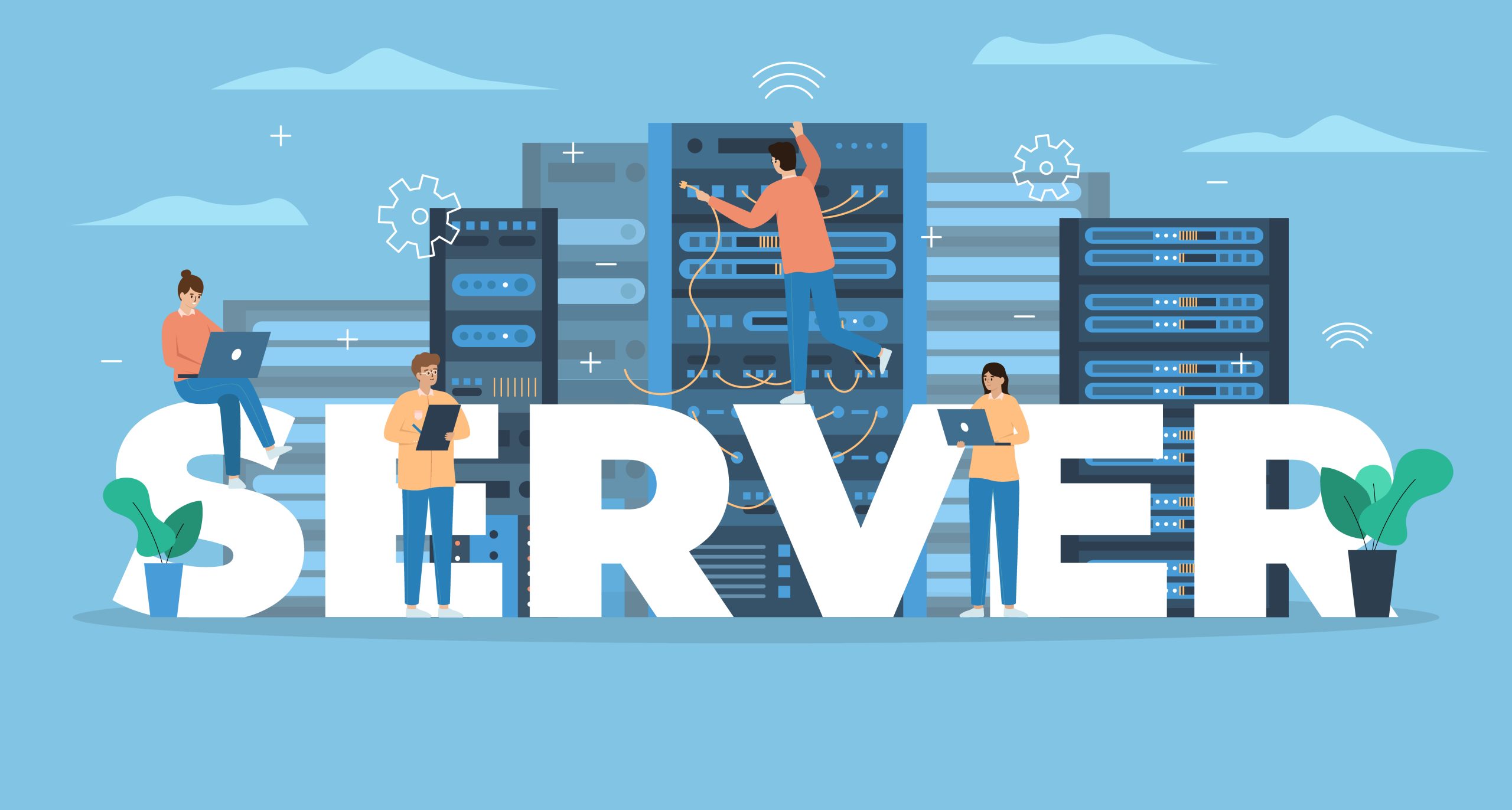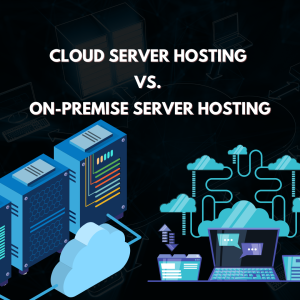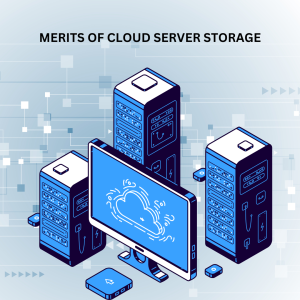This article will discuss in length all you need o know about Managed server hosting for businesses, the benefits and features of managed hosting, and customizations that can be done on a server
What is Managed Server Hosting?
Managed server hosting is a web hosting service where the provider takes care of the technical aspects of running and maintaining a server, such as installation, configuration, security, backup, updates, and monitoring. This allows the client to focus on their core business without worrying about server performance or availability.
It provides customers with dedicated servers and full administrative control over them. Unlike shared or VPS hosting, where multiple websites share the same server resources, managed server hosting gives each customer a separate physical server that they exclusively use.
Managed server hosting for small businesses is suitable for customers with complex or high-traffic websites requiring more resources and flexibility than shared or VPS hosting can offer. It is also ideal for customers who do not have the technical skills or time to manage their servers and prefer to leave that task to the hosting provider.
Importance of Managed Server Hosting for small businesses
If you are a small business owner, you might wonder why a reliable and secure website host is necessary for your business and success. For many reasons, having a website that works well and protects your data and your customer’s data.
Here are some of the ways managed server hosting is useful for you:
- Save time and resources.
Managing a server can be time-consuming and complex, especially if you don’t have the skills or experience to do it properly. With managed server hosting, you can focus on your core business activities and leave the server administration to the experts. You don’t have to worry about hiring, training, or paying IT staff to maintain your server.
- Better performance and reliability.
Managed server hosting providers use high-quality hardware and software to ensure your server runs smoothly and efficiently. They also monitor your server 24/7 and proactively fix any issues affecting your website’s speed or availability. You can enjoy faster loading times, higher uptime, and lower latency for your website visitors.
- Enhanced security and protection.
Managed server hosting providers implement various security measures to protect your server from cyberattacks, malware, spam, and other threats. They also provide SSL certificates, firewall configuration, intrusion prevention, and regular backups to safeguard your data and website. You can rest assured that your server and website are secure and compliant with the latest standards and regulations.
- More flexibility and control.
Managed server hosting providers offer different plans and options to suit your specific needs and budget. You can choose from different server configurations, storage types, operating systems, and applications, and get root access to your server, which means you can customize it. You can install software or tools for your website or business.
What are the Challenges of managing server infrastructure for small businesses?
Managing server infrastructure for small businesses can be a daunting task but also a rewarding one. There are many challenges that IT professionals face when trying to optimize their IT infrastructure and deliver reliable, secure, and scalable services to their customers and employees. Some of these challenges include:
– Developing a cloud strategy that balances the needs of legacy and modern applications and the costs and benefits of different cloud models.
– Finding and retaining IT talent with the skills and experience to handle the complexity and diversity of IT infrastructure.
– Modernizing or retiring legacy applications that are outdated, inefficient, or incompatible with new technologies and platforms.
– Ensuring network security and performance across different devices, locations, and environments.
– Aligning IT objectives with business priorities and demonstrating the value of IT infrastructure to stakeholders.
– Adapting to changing customer expectations and market demands that require faster, more agile, and more innovative IT solutions.
These challenges may seem overwhelming, but they can be overcome with the right tools, strategies, and best practices. By leveraging cloud services, automation, analytics, collaboration, and governance, IT professionals can create an IT infrastructure that is flexible, resilient, and responsive to change.
Managing server infrastructure for small businesses is not easy, but it is an exciting opportunity to make a difference in IT. By embracing and overcoming the challenges, IT professionals can create an IT infrastructure that supports their business goals and delivers value to their customers.
Why Use a Dedicated Server For Optimal Speed and Reliability?
Dedicated server resources are the amount of CPU, RAM, disk space, and bandwidth that are allocated exclusively to your website. Unlike shared hosting, where you share resources with other websites on the same server, dedicated hosting gives you full control and access to your server. This means you can customize your server configuration, install any software you want, and enjoy faster performance and better security.
Dedicated server resources are ideal for websites with high traffic, complex applications, or sensitive data. With dedicated server resources, you can ensure that your website runs smoothly and efficiently without interruptions or slowdowns. You can also scale up or down your resources as your needs change, without affecting other websites on the server.
Benefits of Dedicated Server-to-Server Resources
Exclusive access to server resources means you have a dedicated server not shared with anyone else. You have full control over your server’s hardware, software, and configuration. You can customize it to suit your specific needs and preferences.
Some of the benefits of exclusive access to server resources are:
- Faster performance
You don’t have to compete with other users for bandwidth, CPU, memory, or disk space. Your server can handle more traffic and process more data without slowing down or crashing.
- Greater security
You don’t have to worry about other users compromising your server or accessing your data. You can implement security measures and policies to protect your server from hackers, malware, and other threats.
- More flexibility
You can install any software or application on your server, upgrade or downgrade your server as your needs change and choose the operating system, web server, database, and programming languages that work best for you.
Exclusive access to server resources is the best option for anyone who wants to have a reliable, secure, and powerful server for their website or application. It gives you the ultimate control and performance that you deserve. Don’t settle for less than exclusive access to server resources!
Different server configurations available for customization
Whether you need more storage space, faster processing speed, better security features, or more flexibility and scalability, you can find a server configuration that meets your requirements. Here are some of the main factors that you can customize in your server configuration:
- Processor
The processor is the brain of your server, and it determines how fast it can execute tasks and handle requests. You can choose from different processor types, such as Intel or AMD, and different processor models, such as Xeon or Ryzen. You can also select the number of cores and threads your processor has, affecting its multitasking ability and parallel processing power.
- Memory
Memory is the short-term storage of your server, and it affects how much data it can hold and access at a given time. You can choose from different memory types, such as DDR3 or DDR4, and different memory sizes, such as 8 GB or 32 GB. You can also choose the memory speed and latency, which affect how fast your memory can transfer and process data.
- Storage
The storage is the long-term storage of your server, and it affects how much data it can store and retrieve. You can choose from different storage types, such as HDD or SSD, and different storage sizes, such as 500 GB or 2 TB. You can also choose the storage speed and reliability, which affect how fast your storage can read and write data and how well it can protect your data from failure or corruption.
- Network
The network is your server’s connection to the internet and other devices that affect how fast and secure your server can communicate and transfer data. You can choose from different network types, such as Ethernet or Wi-Fi, and different network speeds, such as 100 Mbps or 1 Gbps. You can also choose network security and encryption, which affect how well your network can prevent unauthorized access and protect your data from interception or modification.
As you can see, many different server configurations are available for customization, and you can mix and match them to create your ideal server setup. By customizing your server configuration, you can enhance your server performance and functionality and achieve your goals more efficiently and effectively.
Conclusion
In conclusion, managed servers are a great solution for small businesses that want to save time, money, and hassle. Managed servers offer many benefits, including security, reliability, scalability, and performance. Outsourcing server management to a professional provider allows small businesses to focus on their core competencies and grow their business.
Managed servers are a smart investment and a competitive advantage in today’s digital world. If you are looking for a reliable and affordable managed server provider, contact us today, and let us help you achieve your goals.





Pingback: What is Server Hosting? An Indepth look